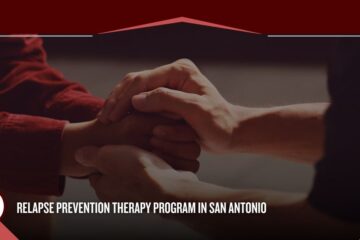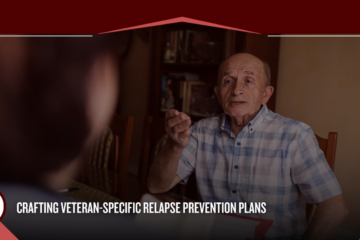Embarking on the path toward recovery can be tough, but you’re not alone. Support groups in addiction recovery in San Antonio play a significant role in this transformation. They provide a safe haven, fostering connections among individuals facing similar battles. Just like skilled professionals at Alamo Behavioral Health, our detox facilities in San Antonio Texas, support groups bridge the gap between solitude and empathy, isolation and mutual understanding. They’re not just groups; they’re communities. These communities are driven by compassion, accountability, and a shared desire to conquer addiction. Let’s dive deeper into how these powerhouses of hope can make the journey toward recovery less daunting and more successful.
The Benefits of Support Groups in Addiction Recovery in San Antonio
In the realm of addiction recovery, support groups are a beacon of hope. These groups comprise patients sharing common experiences, each battling their own addiction demons. This shared journey cultivates a profound sense of mutual understanding and empathy, melting away feelings of isolation and shame.
Support groups foster an environment devoid of judgment, a space where acceptance reigns supreme. Here, everyone has faced similar struggles, allowing those in need the freedom to share without fear of stigma or discrimination. A story that may have once fueled guilt or embarrassment can now ignite understanding and compassion.
Moreover, support groups inspire accountability and motivation. They instill a commitment to sobriety goals and provide an invaluable network of peers to lean on during challenging times. These bonds often spark an unmatched determination to overcome setbacks.
Just as PTSD treatment for veterans Texas centers offer equip individuals with coping skills, support groups aid in skill-building and coping strategies. Members learn from others’ triumphs and stumbles, gaining valuable life skills and relapse-prevention techniques along the way.

The social support and relationships built within these groups are irreplaceable. These connections extend beyond mere friendship – they form a network of like-minded individuals rallying towards a common goal: a life free from the shackles of addiction.
Different Types of Support Groups for Varied Recovery Needs
Support groups are as diverse as the individuals seeking their help. One size doesn’t fit all, and the spectrum of available programs reflects this. At one end, you’ll find the well-known 12-step programs. Anchored in spiritual principles, these programs, like Alcoholics Anonymous (AA) and Narcotics Anonymous (NA), introduce a structured path to recovery. These steps help individuals acknowledge their struggles, seek help, make amends, and strive for continued growth and sobriety.
For those seeking alternatives, non-12-step support groups offer a different perspective. Groups such as SMART Recovery and LifeRing Secular Recovery lean more on cognitive-behavioral techniques, focusing on self-empowerment and self-reliance.
Beyond these, there are specialized support groups tailored to meet unique needs. If you need to detox from harmful substances, there are no one-size-fits-all solutions. Every addiction and every person needs a unique approach. Therefore, much like how medical detox in Texas caters to specific types of addictions, these groups are designed for specific populations such as LGBTQ+, veterans, and women. They address challenges unique to these populations, recognizing that recovery is not a uniform process but a highly personal one. It’s a diverse world of support out there, and each group holds the potential to be the turning point in someone’s recovery journey.

Principles of Support Groups
The processes of a support group may vary, but they all share core principles designed to provide a safe and effective recovery environment:
- Group Meetings and Structure: Support groups in addiction recovery in San Antonio have regular meeting schedules, often weekly or bi-weekly, in various formats, including online meetings or face-to-face ones. Just like a well-structured dual diagnosis treatment center Texas is proud to offer, they have facilitators and ground rules, creating a respectful and safe environment for all members.
- Confidentiality and Anonymity: A cornerstone of support groups is respecting each member’s privacy. This commitment to confidentiality ensures that members can share their experiences openly, knowing their stories will remain within the group.
- Sharing and Peer Support: Participation in discussions is voluntary, encouraging a comfortable pace for members to share their experiences and challenges. This environment cultivates mutual encouragement and constructive feedback, providing both a voice and a listening ear for members.
The beauty of support groups lies in their ability to blend structure with flexibility, ensuring a supportive platform for everyone, regardless of where they are in their recovery journey.
The Integration of Support Groups with Professional Treatment
Support groups can serve as a crucial ally in formal addiction treatment, much like an amplifier, magnifying the effectiveness of professional programs. They don’t just complement the treatment; they add a new dimension of collective experience and emotional support. The recovery process often continues long after one leaves the formal confines of a professional facility like an alcohol detox in Texas. This is where support groups step in, providing continuous help, guidance, and a sense of belonging.
Onto the next chapter of this journey, support groups also play a critical role in linking those in need with professional resources. Suppose you’ve been through a drug detox in San Antonio and are seeking further assistance. In that case, support group leaders can guide you toward appropriate resources, acting as a bridge between individuals and professional help.
Support groups aren’t a standalone solution but a powerful component of a comprehensive approach to addiction recovery. They enhance the treatment efficacy and ensure that every person, regardless of their path, has a hand to hold throughout their journey.

Alamo Behavioral Health Is There to Help
In navigating the challenging terrain of addiction recovery, the role of support groups is monumental. These groups are a sanctuary of shared experiences and mutual understanding. They extend a compassionate hand in a non-judgmental environment, promoting accountability and fostering resilience. From traditional 12-step programs to specialized groups tailored to unique needs, the array of support is diverse, making room for individualized journeys toward recovery. Support groups operate as a structured yet flexible unit, ensuring confidentiality and peer support. They amplify the impact of professional treatments, forming an integral part of the holistic approach to recovery. Remember, the journey might be tough, but you’re never alone. With support groups in addiction recovery in San Antonio and Alamo Behavioral Health by your side, you always have a community ready to walk with you every step of the way. Reach out to us, and let us help you maintain lasting sobriety.





